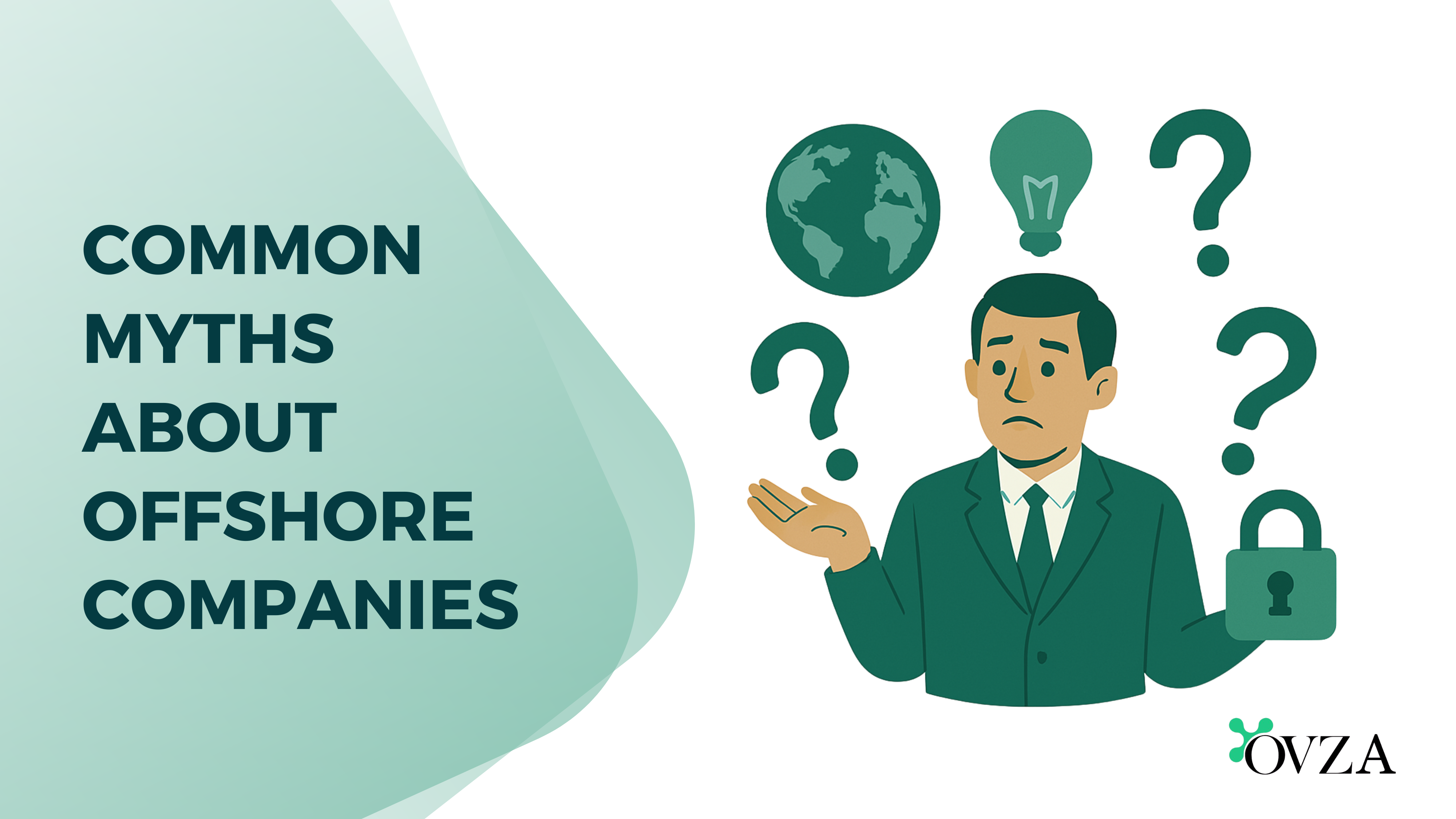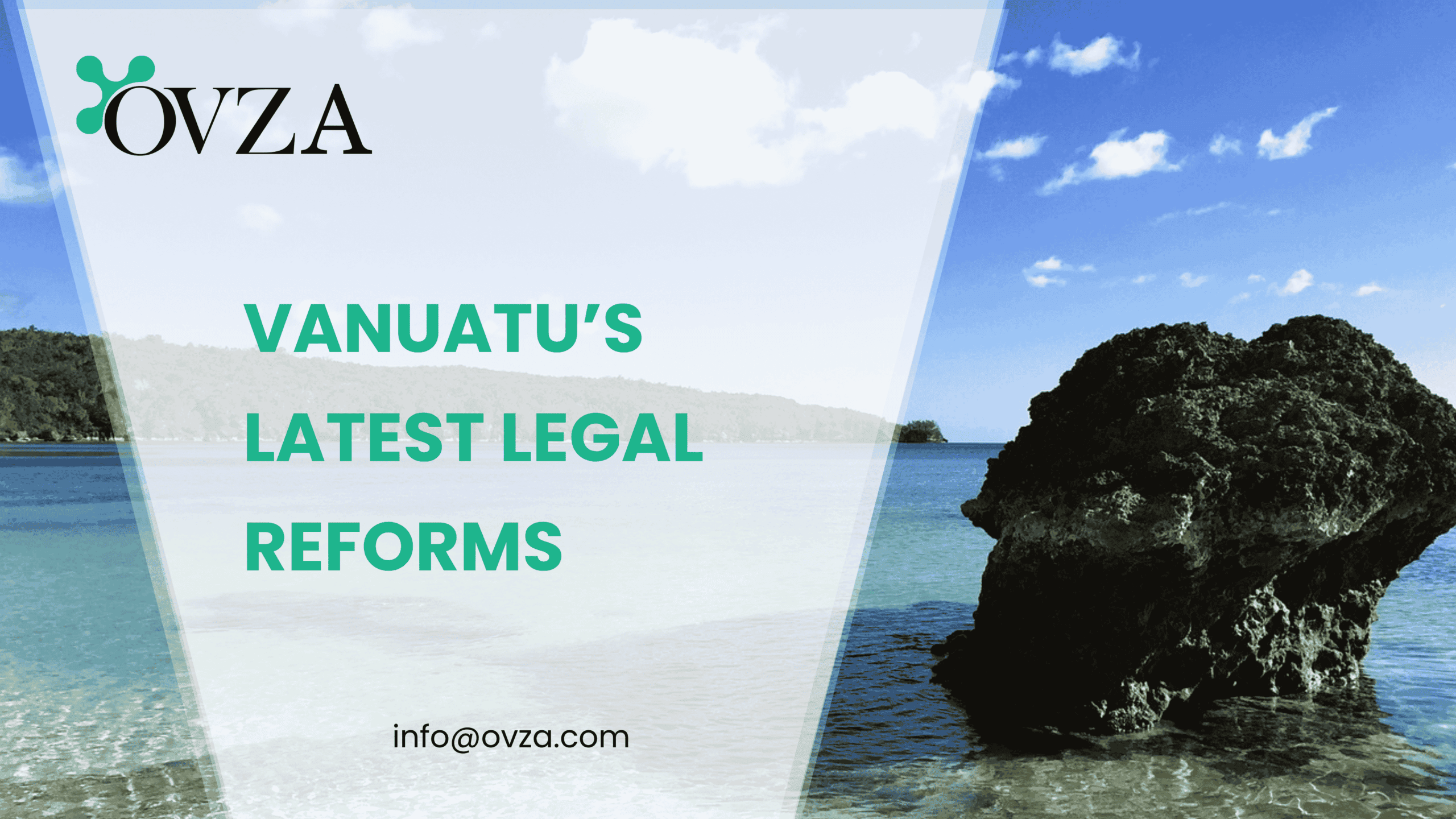Offshore companies are often surrounded by myths, with many misunderstanding their purpose and assuming secrecy or wrongdoing. From news headlines to internet forums, the term “offshore” is frequently used with a negative connotation—implying secrecy, illegality, or tax evasion. But in reality, offshore companies are simply legal entities formed in jurisdictions outside of the owner’s country of residence, and they serve a wide range of legitimate purposes.
Despite being an everyday part of international business, offshore companies are surrounded by myths. These misconceptions can discourage legitimate entrepreneurs from using smart, compliant structures—or worse, lead others to misuse them entirely. In this article, we’ll break down the most common myths about offshore companies, and explain what the facts actually show.
Myth: Offshore Companies Are Only for the Ultra-Rich
Another common misconception is that offshore companies are only used by billionaires or multinational corporations. While it’s true that many large firms utilize offshore structures as part of their global operations, they are by no means the only ones doing so. In reality, small business owners, freelancers, consultants, e-commerce entrepreneurs, and even digital nomads use offshore companies to streamline their businesses and access financial services that may not be available in their home country.
For example, a freelancer working with international clients might form an offshore company to simplify cross-border invoicing and open a multi-currency bank account. An online retailer might use an offshore entity to optimize shipping, payments, and merchant account access. These are not schemes—they are practical solutions for operating in a globalized market.
Myth: Offshore Companies Are Always About Avoiding Taxes
This myth stems from confusion between legal tax optimization and illegal tax evasion. A properly structured offshore company may benefit from low or zero corporate tax, but that does not automatically mean the owner is evading taxes. In fact, most individuals and companies who use offshore structures are still subject to tax in their country of residence and comply with all reporting requirements.
Many offshore jurisdictions operate under territorial tax systems, which means they do not tax foreign-sourced income. That’s not a loophole—it’s the law. Using an offshore company for international income is perfectly legal when it’s declared properly and aligned with local tax rules. In some cases, the purpose of the offshore company isn’t about tax at all—it may be about legal separation of assets, protecting intellectual property, or enabling access to international banking.
Myth: Offshore Companies Don’t Have Any Real Requirements
Many assume that offshore companies are completely unregulated, with no obligations once formed. That’s far from accurate. In fact, modern offshore jurisdictions have implemented significant reforms over the past decade, including economic substance requirements, beneficial ownership registries, and stricter compliance checks for registered agents and banks.
Most offshore companies are required to maintain financial records, and in some cases, submit annual reports or declarations to confirm they are not conducting local business. Depending on the jurisdiction, directors may be required to demonstrate that the company has a legitimate purpose and meets minimal operational standards. Offshore does not mean “no rules”—it simply means the rules are different from those of onshore systems.
Myth: Offshore Companies Are Risky or Unstable
This myth usually comes from headlines, not from experience. Reputable offshore jurisdictions are built on political and legal stability—they must be, because their economic model depends on trust. Offshore service providers, banks, and regulators understand they are under international scrutiny, and most have developed robust systems to ensure compliance and consistency.
In fact, many of the world’s largest financial institutions work with offshore companies every day. Whether it’s issuing credit, processing payments, or opening investment accounts, these companies are often treated no differently than domestic ones—so long as their structure is sound and documentation is in order. The real risk lies not in going offshore, but in doing so without proper guidance.
The Offshore Reality: Practical, Not Secretive
Reputable offshore jurisdictions are built on political and legal stability—they must be, because their economic model depends on trust. Offshore service providers, banks, and regulators understand they are under international scrutiny, and most have developed robust systems to ensure compliance and consistency.
Many of the world’s largest financial institutions work with offshore companies every day. Whether it’s issuing credit, processing payments, or opening investment accounts, these companies are often treated no differently than domestic ones—so long as their structure is sound and documentation is in order.
As Eli Carter, Legal Affairs at OVZA, puts it:
“Offshore companies are one of the most misunderstood tools in international business. At OVZA, we work with clients across dozens of industries—tech, consulting, e-commerce, and investment—and most of them aren’t looking for loopholes. They’re looking for structure. What they need is a legal, flexible way to operate across borders, open accounts, and protect their assets. The offshore world offers that—but only when it’s done right, with full awareness of compliance, reporting, and long-term responsibilities.”
The real risk lies not in going offshore, but in doing so without proper guidance or understanding. With the right structure and the right partner, offshore can be a powerful—and fully compliant—solution.
Conclusion
Offshore companies are not loopholes, shortcuts, or red flags. They are legal structures—used around the world for legitimate, practical purposes. The myths surrounding them often stem from misinformation or the misuse of offshore entities by a small minority. When set up correctly, declared properly, and used for lawful business purposes, an offshore company is simply a tool—one that can offer flexibility, efficiency, and long-term value.
At OVZA, we help clients navigate this space with full transparency and compliance. If you’re considering an offshore structure, the most important decision you’ll make is doing it the right way.
Disclaimer: The information provided on this website is intended for general reference and educational purposes only. While OVZA makes every effort to ensure accuracy and timeliness, the content should not be considered legal, financial, or tax advice.













